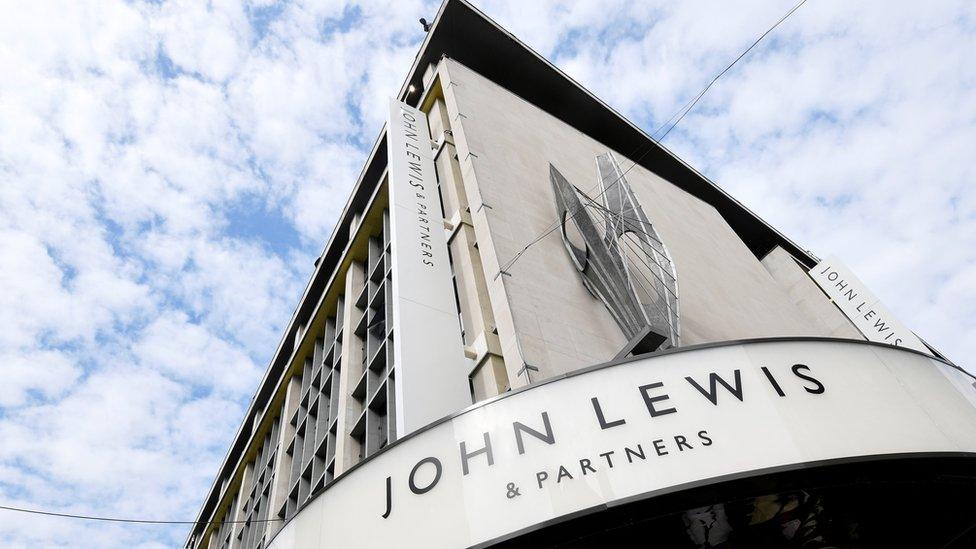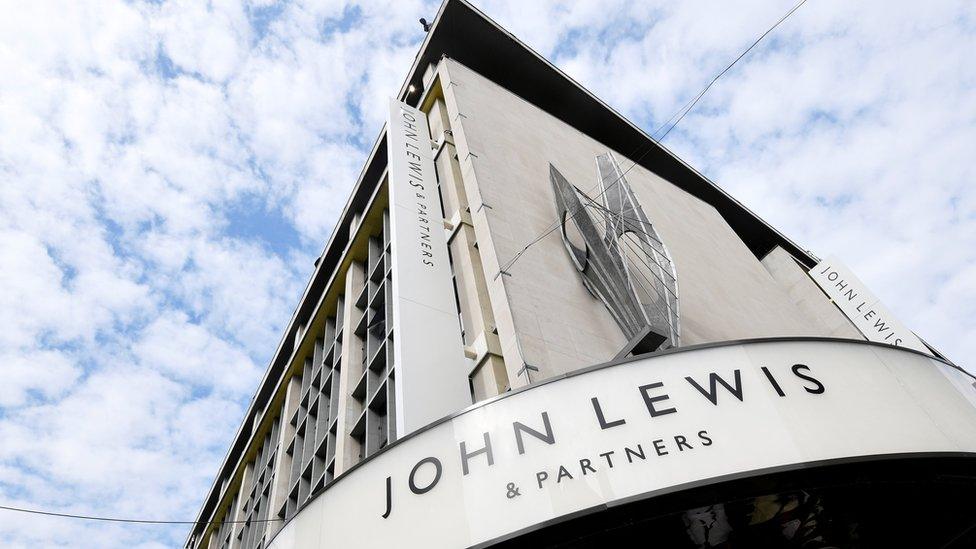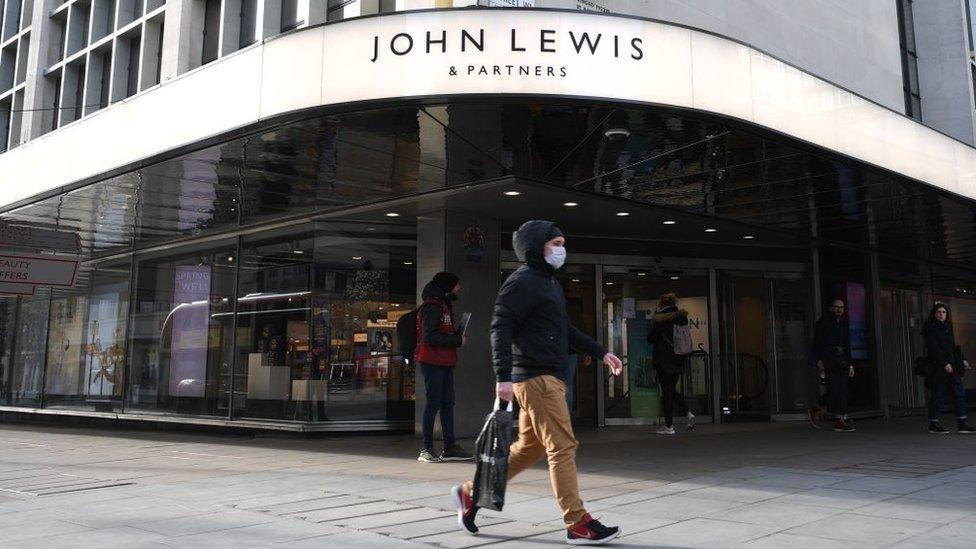Brexit: John Lewis resumes NI home deliveries
- Published

The department store, John Lewis, says it has restarted deliveries of most items to Northern Ireland.
Deliveries stopped in December because of Brexit and the Irish Sea border.
On Tuesday, John Lewis said it had resumed home deliveries of smaller parcels. The company said these cover about 95% of orders.
It added that deliveries of larger items like furniture would begin again "as soon as possible".
The Northern Ireland Brexit deal, known as the Northern Ireland Protocol, means EU customs rules are applied to goods entering Northern Ireland from Great Britain, including parcels.
However, a grace period means there should have been no change for most parcel deliveries from 1 January 2021.
But that grace period was announced just hours before the protocol took effect, meaning some companies had already taken decisions about shipping to Northern Ireland.
In some cases, this meant temporary disruption or slower delivery while other firms ceased delivering.
Earlier this month, the government said the grace period for business-to-business deliveries would be extended until 1 October.
For all other deliveries, for example businesses to consumers, businesses will be given six months to prepare for new arrangements from the date those arrangements are announced.
These extensions happened without the agreement of EU.
The EU said this, and other unilateral measures, breach the protocol and has started legal action as a result.

What is the Northern Ireland Protocol?
The Northern Ireland Protocol is part of the Brexit deal which prevents a hardening of the land border between Northern Ireland and the Republic of Ireland.
It does that by keeping Northern Ireland in the EU single market for goods.
That has created a new trade border with Northern Ireland and the rest of the UK.
Unionists oppose the protocol, arguing that it has damaged internal trade from GB to NI and poses a risk to the future of the UK union.
But anti-Brexit parties in NI say that it must be implemented in full, and that issues should be worked out through joint UK-EU processes.

Related topics
- Published11 March 2021

- Published22 February 2021

- Published1 February 2021

- Published4 January 2021
